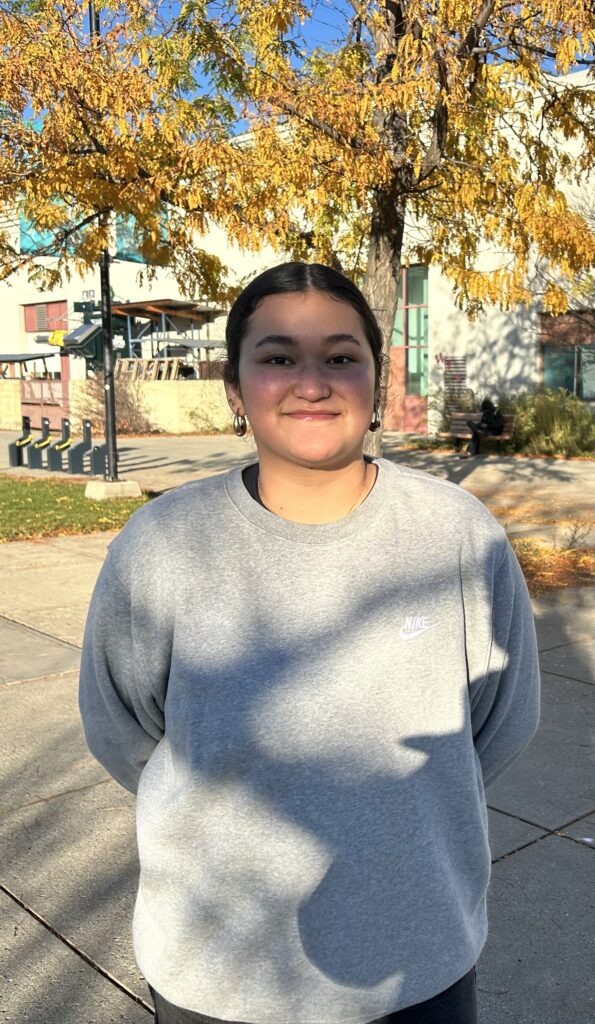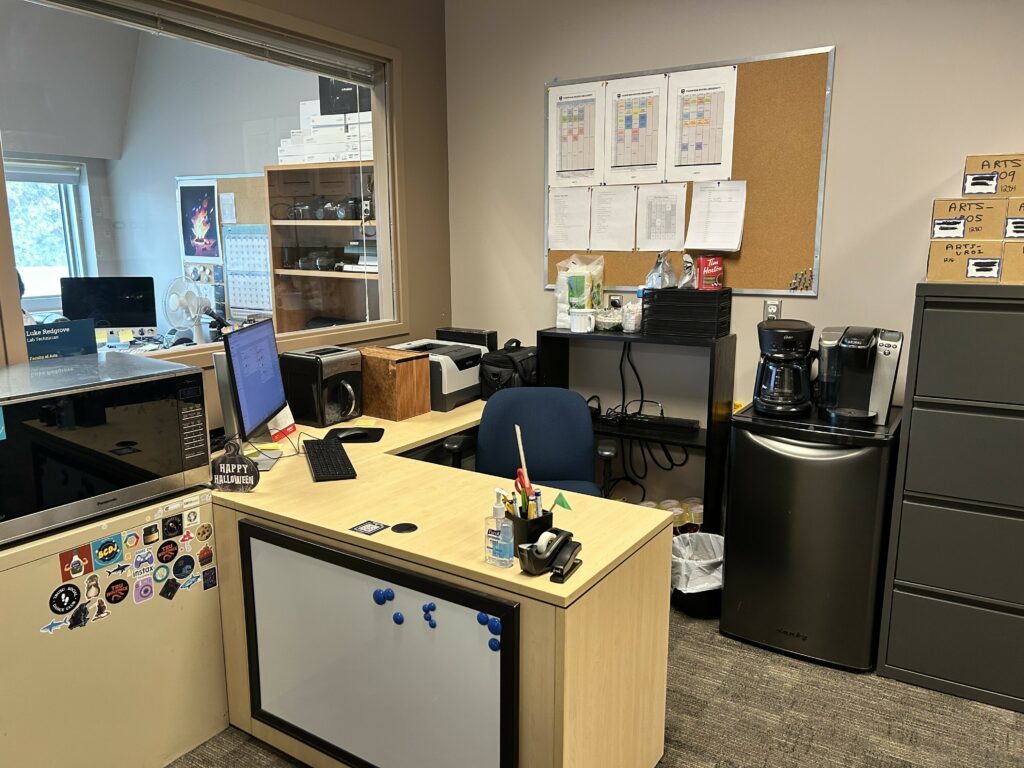TRU Club season has begun and a number of clubs were at the Club Fair in September; among them the Communications and Journalism club. The clubs are an important part of the TRU experience, however, there are still many students not yet part of any club missing on becoming part of their TRU community. As one of the newest clubs, the Communications and Journalism club held its first meeting on October 3rd and has plans for more events throughout the semester, offering just a glimpse of how campus clubs help keep students engaged and connected.
Thompson Rivers University’s clubs have started as the semester gets going, during September a number of different clubs were posted outside Old Main for students to join up with what best fits them. One of the newest clubs was among the posted clubs, the Communications and Journalism club; made for old and new students that are part of the communications or Journalism major to join in order to make friends, connect and have fun. Clubs are an integral part of the university experience all over the world, they allow students to find like minded people and create a community within their majors; this is no different here at Kamloops. Nevertheless, there are a number of students that have yet to take the step and join their destined club. In a recent interview: Aibiike Alymova the president of the Communications and Journalism club, discussed the importance of the club, their plans and more. During the interview it was revealed the origins of the club and how it became what we know now.
“So the journalism communications club originally started off as peer mentorship. It was a group of six people that we were peer mentoring for the program. Specifically when we started, it was Bachelor of Arts, majoring Communications, offering new media and PR, but we decided to expand more on our kind of field and get more people involved in it.”

The club is just at its beginning, it has a plethora of new ideas and activities for students that are eager to make friends and hangout with students with similar interests. The club is exploring the different activities that can be organized to engage students, such as a movie night featuring journalism related films. According to the club president, these activities can be a great way for students to spend an evening in Kamloops, especially if they’re looking for a fun different night. Clubs all over campus are not just “for fun”, but also to grow as a student and as a person, the Communications Clubs is no different as it allows members to grow and learn more about their major. Alymova emphasizes the advantages of clubs, by offering students valuable connections with other students and professionals:
“It’s mostly about networking because, for example, we have one of our alumni, Madeline. She works for the Chamber of Commerce. And just like the fact that younger students can chat to Madeline about how she started off her degree, and how she was going through her path.”
Aibiike Alymova explains how clubs such as the communication and journalism club also prioritize collaborating with professionals, in order to offer unique experiences for students:
“Last year we had, like an open class, because there was a class called decolonizing journalism, and people within, like an indigenous newspaper came in to speak, and our club got to collaborate with them, like they made it an open class for like anyone to drop in, drop out, not even like the people who are participating in the class. So also, we have Jennifer Kramka, who is willing to give like talk to CBC Kamloops, to give us, like a tour around CBC Kamloops, so that’s how we’re collaborating with professionals for now.”
Students all over campus new and old, are still doubting on joining their respective clubs or just joining something that interests them. Students are missing out on finding a group of like minded individuals, taking the leap of faith and joining a club in their university that best suits them. Joining clubs during university years yields great advantages for students and their experience during their time away from home, it offers students opportunities for networking, personal growth, and collaboration on exciting projects. Here’s what Alymova had to say for students having second thoughts:

“If you’re not sure about joining it, try attending one of our like events or meetings, if you like it. We’re always looking forward towards new people. But I want to say that it is a great opportunity, because I don’t think that the journalism and communications department is that big, and it’s very important to like, know people within your degree.”
Clubs are an amazing opportunity to meet new people, find activities that interest you and find opportunities within your major or just something that interests you. TRU is filled with clubs that can help students find friends, network and have fun. The Communications club isn’t the only club available, there are clubs for Computer Science students, Anime Club, Latin Club and more. Each filled with similar members that will welcome anyone willing to join.
Avoid repetition. How many times have you used “club” on your first sentence?
—-
Don’t say: In a recent interview: Aibiike Alymova the president of the Communications and Journalism club, discussed the importance of the club, their plans and more. During the interview it was revealed the origins of the club and how it became what we know now.
Say: Aibiike Alymova, president of the Communications and Journalism club, says it started as a peer mentorship with a group of six students. “When we started, it was Bachelor of Arts, majoring Communications, offering new media and PR, but we decided to expand more on our kind of field and get more people involved in it.”
—-
You use quotes that are too long. Review the presentation on quotes. You should paraphrase most of them in a better, more concise way.